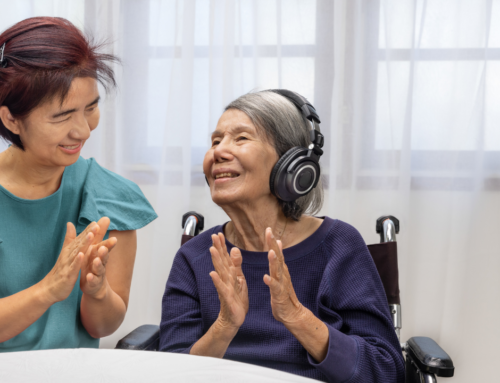Share This Story!
The Brain Benefits Of Puzzles
For many people, puzzles are a fun, relaxing activity. But most people don’t realize that puzzles can offer significant benefits for brain health. Both jigsaw and crossword activities keep the mind stimulated and activate neuroplasticity. As people get older, keeping the mind sharp becomes a priority. Here’s how puzzles can help seniors.
Do I need to worry about cognitive decline?
Recent studies have shown that up to 50% of the risk factors for dementia, Alzheimer’s disease, and other cognitive problems can be caused by lifestyle choices. While experts don’t have all the answers, there is significant evidence that the brain needs to be exercised through activities that are stimulating for the mind. In particular, word puzzles and jigsaws can be beneficial in improving cognitive function. One study found doing these games regularly can keep adults functioning with brain health that’s equal to 10 years younger than the person’s actual age.
Keeping dementia at bay
Recent studies have shown that patients who do word or number puzzles at least once a month have higher cognitive performance than those who do not. Additionally, a 20-year study concluded that patients who reported doing crossword puzzles experienced an average 2.54-year delay in the onset of dementia. Research for the effects of these games is ongoing; however, there are no health risks associated with doing puzzles, so the activity is worth trying.
Recovering from strokes
Word games such as crossword puzzles have become a crucial therapy for stroke survivors. These games can help increase the cognitive training necessary to stroke recovery. Jigsaw puzzles can be of benefit, too, by sharpening memory skills and forming new neural pathways that may have been damaged by a stroke. Like crosswords, trivia puzzles can be essential for restoring critical thinking and short-term memory skills.
Treating Parkinson’s disease
Parkinson’s disease is a central nervous system disorder that most often causes tremors. Because this disorder originates in the brain, completing crossword or jigsaw puzzles can strengthen the mind and help patients manage Parkinson’s symptoms. Jigsaw puzzles, in particular, can increase skills of problem-solving, coordination, matching, and memory.
Use it or lose it
When people don’t exercise the brain, cognition can decline. The more a person uses the brain, the stronger the connections in the brain become. Research has shown that increasing the frequency of doing puzzles has a direct impact on improving cognitive function. For seniors who are concerned about cognitive decline, doing a daily puzzle can help keep the brain sharp. For more information about keeping the mind young, speak with a healthcare provider.





